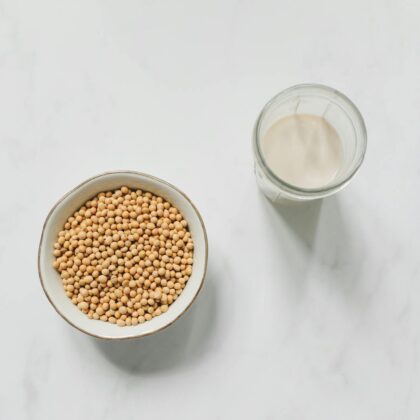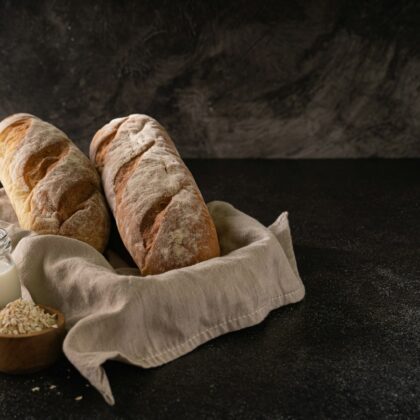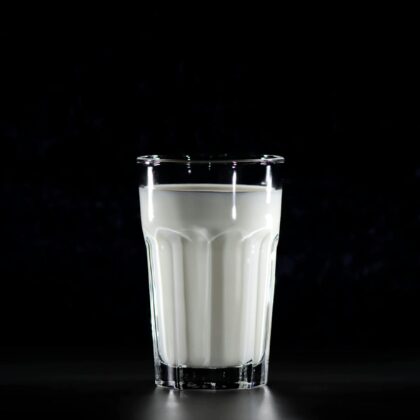
Generally speaking, a microbiota refers to a group of micro-organisms living in a given ecosystem. In the human body, The intestinal microbiota then represents the sum total of the micro-organisms that colonise the digestive tract. Essential for the body to function properly, it influences digestion, the immune system and stress management.
A healthy microbiota contains numerous bacteria capable of breaking down nutrients, including lactose. In other words, the reduced activity of your intestinal flora is likely to aggravate the digestive problems caused by your lactose intolerance or 'alactasia', which is why it's so important to understand the major role played by the microbiota in your overall health.
Unbalanced intestinal microbiota: what are the causes and consequences?
To function normally, the human microbiota needs good micro-organisms.
On the contrary, an imbalance in the intestinal flora can be observed when :
- the quantity of good bacteria decreases
- the number of pathogenic bacteria increases
- the diversity of bacterial species is reduced
These 3 cases can be explained by stress, antibiotic treatment, an unbalanced diet, etc. Genetic and environmental factors can also be the cause of a drop in the activity of your microbiota.
As a result, you may be suffering from a variety of intestinal problems (bloating, flatulence, transit problems, etc.), or even a lack of physical energy or heightened emotionality. However, most of the physical signs of an unbalanced microbiota also appear in the event of lactose intoleranceThis is the partial or total inability to assimilate the complex carbohydrates in milk.
In principle, the combination of alactasia and reduced activity of the intestinal microbiota results in maximum digestive discomfort. The Lactolérance team explains the link between food intolerance and this imbalance in the body.
Lactose intolerance and reduced microbiota activity: do they affect each other?
The slowing down of microbiota functions is a phenomenon closely linked to old age, in the same way as lactose intolerance. As we age, we are all inclined to become intolerant to milk carbohydrates, in varying proportions, and to feel the effects of a decline in the microbiota.
- If the intestinal microbiota is unbalanced, lactose fermentation is reduced: in the body, the enzyme lactase is responsible for breaking down the sugars present in milk. Some of the lactose may also find its way into the colon, where the microbiota is involved in its fermentation. In periods of reduced activity, the microbiota prevents the lactose from being properly digested.
- The lack of beneficial bacteria in the intestinal flora plays an active role in the poor digestion of milk carbohydrates. Bacteria such as Lactobacillus and Bifidobacterium are known to help digest lactose (for information, you can find these good bacteria in Lactolérance 1Day).
- A healthy microbiota can stimulate lactase production in the intestine. Conversely, a less active intestinal flora can reduce the amount of lactase produced, leading to an increase in the amount of undigested lactose.
- An unbalanced microbiota is sometimes the source of inflammation of the intestinal wall, which in turn disrupts the absorption of nutrients such as lactose.
Fortunately, a decline in microbiota activity is not an end in itself. There are natural solutions that can make it easier for you to keep your intestinal flora in balance, such as adopting a balanced diet rich in fibre and regular exercise. Daily consumption of probiotics guarantees bacterial diversity in the body, while being particularly well tolerated by people with lactose intolerance thanks to their degree of fermentation.
Make a fresh start with lactose thanks to Lactolerance 1Day! 🚀

Hello, I'm Vincent
Like you, I'm lactose intolerantI know exactly what you're going through and the difficulties you encounter on a daily basis. For over 10 years, I've been helping our customers to use our dietary supplements and giving advice and tips on how to improve their digestive comfort. I'm also a keen cook and gourmet, so you'll find my favourite recipes for a lactose-free diet in this blog.
Lactose intolerance is not inevitable! With LACTOLERANCE you can digest with complete peace of mind





